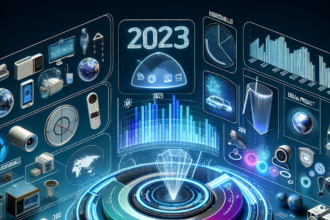As we step into 2025, the landscape of consumer behavior is rapidly evolving, shaped by technological advancements, societal changes, and shifts in global economic conditions. The digital marketplace has become more intricate, necessitating businesses to adapt to the changing preferences and expectations of consumers. Understanding these shifts is crucial for brands hoping to thrive in the ever-evolving marketplace. This article explores key trends and factors influencing consumer behavior in 2025 and provides insights on how businesses can adapt.
The Influence of Technology
1. Increased Reliance on Artificial Intelligence
AI continues to play a dominant role in shaping consumer experiences. From personalized recommendations to predictive analytics, AI helps brands understand shopping habits and preferences better than ever before. By 2025, tools like virtual shopping assistants and chatbots are expected to evolve to provide real-time, tailored interactions, influencing purchase decisions significantly. Brands will need to invest in AI to create seamless, interactive, and customized shopping experiences.
2. Augmented Reality (AR) and Virtual Reality (VR)
AR and VR are transforming how consumers interact with products. Expanding upon the success of virtual try-ons and immersive shopping experiences, these technologies will become more mainstream. By 2025, consumers are likely to prefer experiences that allow them to "try before they buy" virtually. Businesses must develop AR and VR capabilities to meet this demand and enhance customer engagement.
3. The Rise of Voice Commerce
As voice-activated devices become more sophisticated, voice commerce is expected to soar. Consumers will increasingly rely on voice searches for product inquiries and purchases. Businesses should optimize their online presence for voice search to capture this growing segment of consumers who prefer speaking over typing.
The Impact of Social Media
4. Influencer Marketing Evolution
By 2025, influencer marketing will have matured, focusing more on authenticity than sheer reach. Micro and nano influencers, with their deep connections to niche audiences, are likely to gain more traction. Brands should shift their strategies to collaborate with influencers who align with their values, boosting credibility and engagement.
5. Social Commerce Growth
The integration of shopping features on social media platforms will turn social media into a primary sales channel. More consumers will expect to browse and purchase products directly through these platforms. Businesses must harness social commerce by optimizing their social media presence and creating engaging content that drives sales.
The Shift in Consumer Values
6. Sustainability and Ethical Consumption
Today’s consumers are increasingly conscious of sustainability and ethical implications surrounding their purchases. By 2025, this trend will intensify, with more consumers prioritizing brands that demonstrate social responsibility and environmental commitment. Businesses must adapt by incorporating sustainable practices and transparent supply chains to attract responsibly minded consumers.
7. Experiential Over Material
In an age of disposable culture, consumers are gravitating towards experiences rather than merely acquiring material goods. With an emphasis on unique experiences, brands can foster deeper connections with customers. Companies should explore offering unique experiences—both online and in-person—to nurture brand loyalty.
Conclusion
As consumer behavior continues to evolve in 2025, businesses must adapt to the changing dynamics of the digital marketplace. Technologies like AI, AR, and voice commerce will redefine consumer interactions, while social media engagement will morph into a powerful sales channel. Additionally, the shift towards sustainability, ethical consumption, and experiential purchases will impact decision-making processes.
To succeed in this digital economy, companies must anticipate and respond to these trends effectively. Embracing technology, aligning with consumer values, and enhancing the overall shopping experience will be imperative for brands determined to stand out in a crowded marketplace.
FAQs
Q1: How can businesses collect data on consumer behavior in 2025?
A1: Businesses can collect data through analytics tools, customer feedback, social media insights, and by using AI-driven platforms that monitor consumer habits and preferences.
Q2: What role does artificial intelligence play in consumer engagement?
A2: AI enhances consumer engagement by providing personalized recommendations, improving customer service through chatbots, and analyzing purchasing patterns to develop targeted marketing strategies.
Q3: Why is sustainability important to consumers in 2025?
A3: Consumers are increasingly aware of environmental issues and social responsibility. Brands that demonstrate sustainability are more likely to attract and retain customers who prioritize ethical consumption.
Q4: How should businesses adapt to the rise of voice commerce?
A4: Businesses should optimize their websites for voice search, enhance product descriptions, and provide clear answers to queries through voice-enabled devices to capture this growing market.
Q5: What strategies can enhance the online shopping experience?
A5: Strategies include implementing AR for virtual try-ons, utilizing chatbots for customer queries, and providing a seamless mobile experience to enhance user satisfaction.










